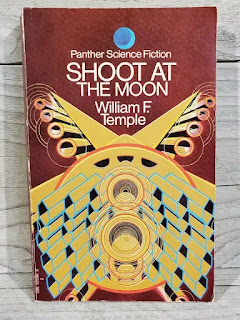I picked up Palm Beach Finland earlier this year and quite enjoyed it. So I picked up Little Siberia and found it slightly less enjoyable. Tuomainen sees himself as a Finnish Hiaissen but he simply hasn't thought it through with this one.
The start is promising. A meteorite falls to earth on the Finnish border with Russia, smashing through the car roof of an alcoholic ex-rally driver who was aiming to smash into the cliff-face and kill himself. It turns out to be a meteorite of special interest, its composition unusual. They say it's worth a million euros. It will have to be taken to Helsinki, then on to London for further study. In the meantime it is lodged in the War Museum in Hurmevaara and guarded for the next four days by volunteers from the villagers.
The first night the young pastor is on guard duty when unknown criminal try to steal the meteorite. Unfortunately they raid the wrong cabinet in the darkness and steal the wrong item, with fatal consequences.
So far, so good, we think. Cracking premise, nice set-up. Our protagonist, Joel, is no ordinary pastor. He is a veteran of the Afghan war in which he was seriously injured. He has a beautiful, clever wife who he adores. She tells him she is pregnant. He should be thrilled - but the pipe bomb he stepped on in Afghanistan left him permanently infertile. Somehow he hasn't told Krista about his problem - and that's where ther shortcomings of Little Siberia begin.
Joel presents as an honest man. He doesn't pretend that he believes absolutely in God. He just wants to use compasssion and his listening skills to help the villagers. So why would he not tell the wife he adores? The resolution of this plotline is cursory in the extreme and I didn't believe it for a moment.
Likewise, the cosmic pebble which drops in the stagnant pond that is Hurmevaara is rather mechancially worked out. A bunch of suspects is put in front of us and eliminated in turn. A couple of interfering Russian gangsters offer promise but end up going nowhere much.
Little Siberia is pacey but perfunctory. Worse, it is not as funny as it thinks it us. I won't be picking up the next Tuomainen I come across.




